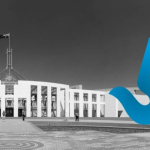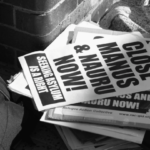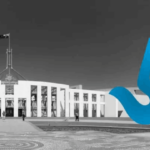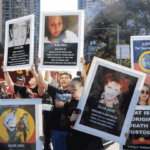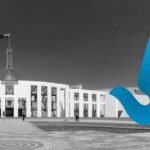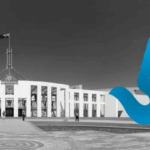The Political Climate Is Ripe for a Human Rights Act in New South Wales
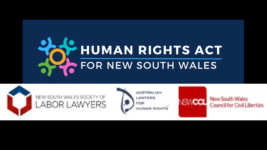
Australia remains the only liberal democracy globally without rights protections enshrined in federal law. Indeed, until not so long ago, no bill of rights or Human Rights Act (HRA) existed at any level of government: that was until the often-pioneering ACT Legislative Assembly passed one in 2002.
For much of this time, this lack of basic rights protections has been, at best, a source of embarrassment, while on a more detrimental level, it’s seen the enactment of a plethora of rights-denying laws, which permit acts that do breach international rights law to carry on legally.
Gone are the days when, on being questioned by a NSW police officer, an individual might respond with the US-inspired, “I know my rights”, as the societywide debate over rights during the pandemic served to inform most, who hadn’t been in the know, about of our nation’s lack of protections.
And while the stalemate has continued at the federal level, other states have followed the ACT’s lead, with Victoria enacting a charter of rights in 2004 and Queensland passing its Human Rights Act in 2019, which still leaves the people of the nation’s most populace state unprotected at all levels.
But this looks likely to change, as members of the 40-odd NSW legal and civil society organisations running the Human Rights Act for NSW campaign (HRA4NSW) hosted a recent event that saw the NSW attorney general Michael Daley confirm he is open to enacting one.
A HRA for NSW
“The NSW Council for Civil Liberties fundamentally supports enhanced and enforceable protections for human rights in Australia,” said Josh Pallas, president of the NSWCCL. “Defending freedom of speech and expression and the right to protest has always been a core pillar of the council’s work.”
“Working with other civil society organisations and advocacy groups allows us to deepen the support base and show governments of all persuasions how strong the civil society push is for human rights protections,” the lawyer told Sydney Criminal Lawyers.
The HRA4NSW Alliance is co-convened by NSWCCL and Australian Lawyers for Human Rights (ALHR), and it further involves a steering committee that includes the NSW Society for Labor Lawyers. And all three organisations hosted the HRA event in July, which outlined the benefits of such protections.
Speaking on the night was former NSW Director of Public Prosecutions Nicohlas Cowdery, human rights lawyer Kate Eastman and UNSW Law Professor Catherine Renshaw. And this lineup, coupled with the alliance and attendees, certainly displayed the huge support for a HRA in the community.
“We are heartened by the genuine interest that the current NSW government has in a Human Rights Act for NSW,” Pallas continued, adding that the attendance of the state’s chief lawmaker at the event, with his asserted willingness to introduce human rights legislation, underscored this.
Proactive protections
“A HRA will benefit everyone in NSW by legally articulating and protecting everyone’s human rights equally,” ALHR president Kerry Weste outlined. “If laws are adequately scrutinised before they are passed, everyone benefits because human rights violations can be prevented before they occur.”
“The rights and freedoms protected would be based on Australia’s international obligations under the International Covenant on Civil and Political Rights and the International Covenant on Economic, Social and Cultural Rights,” the lawyer further explained.
According to Weste, having rights protections enshrined in law will lead to public entities working in accordance with them, which would include police, schools and local councils. And on an individual level, a HRA would provide accessible low-cost pathways to obtain a solution when breaches occur.
In Queensland, people can enter a complaint regarding a rights breach, which are dealt with in a similar way as discrimination cases, Weste explained. The ACT is about to establish its own such process, and she added that a HRA will allow direct action to be taken in the courts to seek recourse.
“It would also empower courts and tribunals in NSW to interpret legislation consistently with human rights and establish mechanisms for courts to alert the NSW government where laws are found to be incompatible with rights protected in the Act,” the ALHR president told SCL.
An edifice of rights-eroding laws
Pallas has been one of the most vocal critics of the antiprotest regime the now defunct Perrottet government enacted, in a distinctly rushed manner, in April 2022, which allows the courts to imprison climate defenders for up to two years for obstructing roads, tunnels, bridges or facilities.
“NSW’s antiprotest laws fall short of Australia’s international human rights obligations on any measure, as they go well beyond what is necessary and proportionate for the protection of public order,” the NSWCCL president made clear.
“The human rights treaties Australia has ratified either explicitly or implicitly require that an individual who has had their rights breached has access to effective remedies, including judicial remedies,” the lawyer said, adding that this would also apply to holding the government to account.
So, as far as Pallas is concerned, a HRA would have likely prevented the passage of these laws, whilst Weste points out that rights protections don’t halt a majority passing legislation, but they do require deliberated debate in relation to rights, which would have stopped them being rammed through.
The NSWCCL has been a chief critic of the counterterrorism laws that successive governments have been passing. While UNSW Law Professor George Williams has explained that our country exceeds all other comparable nations in terms of these laws specifically due to our lack of rights protections.
“It’s our hope that the same would apply to antiterror and national security laws,” Pallas continued. However, he further warned that “unfortunately human rights jurisprudence overseas has shown a far greater appetite for encroachment on civil liberties in the name of these causes”.
On the cards
“With the support of the association representing Labor lawyers in NSW, as well as the openness of the attorney general to the reforms, we are confident we will get a HRA on the agenda in this term of parliament,” remarked NSW Society of Labor Lawyers president Lewis Hamilton.
“Whether it passes will ultimately depend on the position taken by NSW Labor’s caucus and crossbenchers from other political parties,” the barrister told SCL.
Labor MLC Stephen Lawrence told the NSW Legislative Council that he’d attended the event and he supports the passing of such laws in NSW. The well-known barrister added that the NSW Society of Labor Lawyers had written to all NSW Labor MPs “urging a Human Rights Act for NSW”.
Weste further outlined that in the states where HRAs are already in operation “concrete benefits” are being delivered, in terms of accessible housing, inclusive education, healthcare access to all, keeping child detainees out of adult prisons and protecting First Nations cultural rights.
“Most of this work does not happen in a courtroom,” the lawyer said in conclusion. “The most valuable aspect of a HRA is that it creates a culture of awareness that places human rights at the heart of the work of government.”
Human Rights Act for NSW wants everyone in this state to be a part of the growing conversation. You can sign your support here, as well as email your local MP.


